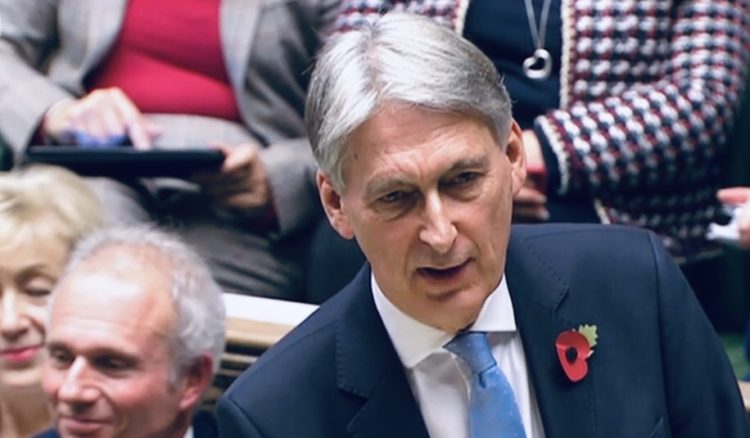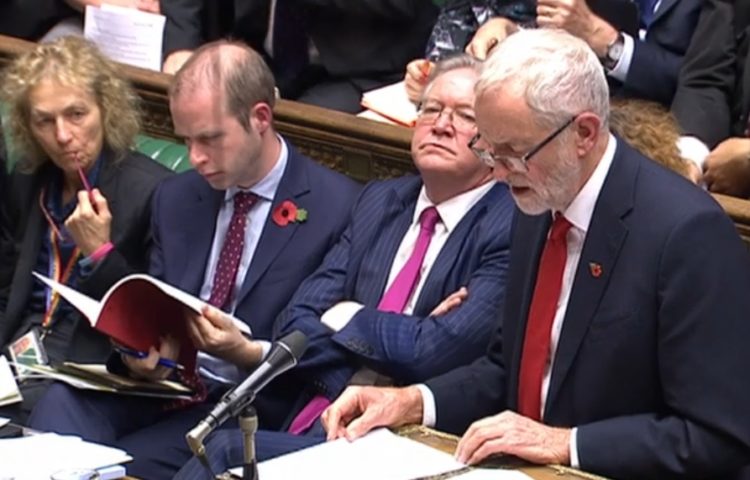Chancellor Philip Hammond has delivered one of the most free-spending Budgets since the financial crash – but Labour says it is too little, too late. Tony McDonough reports

Chancellor Philip Hammond has repeated Prime Minister Theresa May’s recent assertion that the UK’s eight-year period of austerity was at an end during his Budget speech to the House of Commons.
Delivering the final Budget before Britain leaves the European Union in March next year, the Chancellor acknowledged the eight years of pain the country had endured since the financial crash.
Tough decisions
He told MPs: “Tough decisions of the last eight years were not driven by ideology. They were driven by necessity and by the failure of the party opposite in Government. We did what needed to be done. But the era of austerity is finally coming to an end.”
In his Budget Mr Hammond pledged an extra £1bn a year to support people moving from the old social security system on to the much-maligned Universal Credit and offered an extra £1.7bn to reverse planned cuts to the new benefit.
He also said he would increase the work allowance component of universal credit, which he said would make 2.4m working people and people with disabilities £630 a year better off.
There were also changes announced to the income tax personal allowed which will rise to £12,500 from next April as well raising the higher rate threshold to £50,000.
Digital tax
One eye-catching measure in the Budget was a new digital services tax. It would be paid only by companies that generate £500m a year globally and is clearly designed to target internet giants such as Google and Facebook. Mr Hammond says the levy was expected to raise around £400m a year.
And he also said PFI would no longer be used for future capital projects.
There was also some relief for small retailers ahead of the next rates revaluation in 2021. All retailers in England with a rateable value of £51,000 or less would see their rates bill slashed by a third. And he unveiled the £675m Future High Streets Fund in the Budget to support councils in their efforts to transform high streets.
Mental health
An extra £1bn will be spent in the next two years on the Ministry of Defence, especially to allow for nuclear submarine upgrades and there were extra spending commitments for mental health services and social care.
Mr Hammond also announced that Stamp Duty would be abolished for all first-time buyers of shared ownership properties valued up to £500,000, applied retrospectively to the date of the last Budget and he set aside an extra £500m for no-deal Brexit preparations.
The 2018 growth forecast was upgraded to 1.6% from 1.3% last year and 1.5% in March and the economy is predicted to grow 1.4%, 1.4%, 1.5% and 1.6% in 2019, 2020, 2021 and 2022 respectively.
Public borrowing in 2018 will be £11.6bn lower than forecast in March. Borrowing forecast to be £31.8bn, £26.7bn. £23.8bn, £20.8bn and £19.8bn in next five years. Debt as share of GDP peaked at 85.2% in 2016-17, falling to 83.7% this year and to 74.1% by 2023-24.

Labour’s response
In response Labour leader Jeremy Corbyn said the extra spending on mental health services was, according to experts in the field, “only half off what is needed”. He also dismissed the extra social care funding as a “drop in the ocean”.
Mr Corbyn also attacked the Chancellor for offering too little support for the English regions and for projects such as the Northern Powerhouse and said the business rates relief was nowhere near enough.
He added: “Britain is the most regionally-unequal country in Europe. The government reinforces these disparities… our high streets won’t thrive until people have more money to spend.”
And he rejected the premise that austerity had come an end, saying: “The Government claims austerity has worked so now they can end it. That is absolutely the opposite of the truth. Austerity needs to end because it has failed.
“What we’ve heard today are half measures and quick fixes while austerity grinds on. And far from people’s hard work and sacrifices having paid off, as the Chancellor claims, this Government has frittered it away in ideological tax cuts to the richest in our society.”

